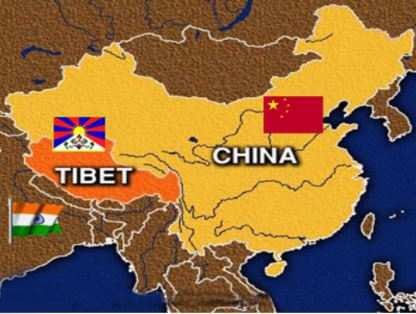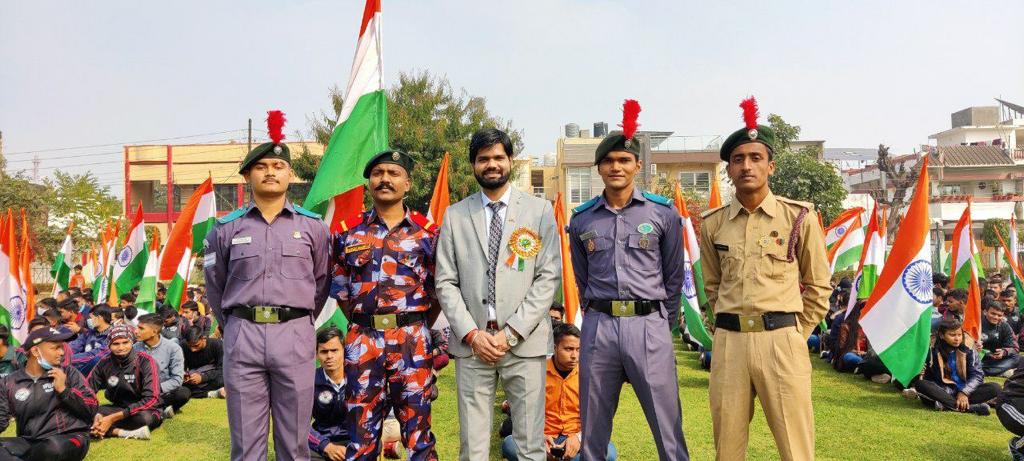India’s Tibet Policy | Best NDA Coaching in Lucknow, India | Warriors Defence Academy

Warriors Defence Academy | Best NDA Coaching in Lucknow | Best Airforce Coaching in Lucknow | Best Defence Coaching in Lucknow India.
Address: 545-GA/1-CHHA, beside Madhuwan Guest house Chandganj Near Railway Crossing, Kapoorthla, Lucknow, Uttar Pradesh 226006
Phone: 07081011964
Website: https://warriorsdefenceacademy.com/
Website: https://warriorsndaacademy.com/
◆Recently, some Chinese nationals protested against the celebration of the birthday of the Dalai Lama in India.
◆The Dalai Lama and Tibet are one of the major irritants between India and China relations.
◆China considers the Dalai Lama a separatist, who has great influence over Tibetans. India seeks to use the Tibetan card in order to counter China’s continuing aggression at the Line of Actual Control.
Background of India’s Tibet Policy: NDA Coaching in Lucknow
●For centuries, Tibet was India’s actual neighbor, as most of India’s boundaries and the 3500km LAC are with the Tibetan Autonomous Region and not the rest of China.
●In 1914, it was Tibetan representatives, along with the Chinese that signed the Simla convention with British India that delineated boundaries.
●However, after China’s full accession of Tibet in 1950, China repudiated the convention and the McMahon line that divided the two countries.
●Further, in 1954, India signed an agreement with China, agreeing to recognize Tibet as the “Tibet region of China”.
●In 1959, following the Tibetan uprising, the Dalai Lama (spiritual leader of the Tibetan people) and many of his followers fled to India.
●Former Prime Minister Jawahar Lal Nehru gave him and Tibetan refugees shelter and help in setting up the Tibetan government in exile.
●The official Indian policy is that the Dalai Lama is a spiritual leader, and the Tibetan community in India, with more than a lakh exiles, is not allowed to undertake any political activity.
- Best Books for AFCAT 2024 Preparation
- AFCAT 2024 Syllabus and Exam Pattern: Download PDF of Syllabus
- What are GTO Tasks in SSB Interview? Types, Skills and Tips for Preparation
- 10 Tips for Writing TAT Stories in SSB Interview
- How to Prepare for NDA-2 2024 Exam – Subject Wise Tips And Strategy



The Shift in India’s Tibet Policy: NDA Coaching in Lucknow
◆In the event of increasing tensions between India and China, there has been a shift in India’s Tibet Policy. This shift in the policy earmarks the Indian government actively managing with the Dalai Lama in public forums. For Example,
◆In 2014, the Prime Minister of India (PM) invited the head of the Tibetan government in exile in India, Lobsang Sangay, to his swearing-in ceremony.
◆However, he did not invite him in 2019 after being re-elected for a second five-year term, to ensure a smooth passage for a second informal summit between him and Chinese President Xi Jinping.
◆Recently, the Prime Minister of India (PM) wished the Dalai Lama in the first such public acknowledgment since 2013, the first time as PM.
◆The shift in India’s Tibet policy is majorly focused on symbolic aspects, but there are many challenges pertaining to India’s Approach to Tibet Policy
Challenges Associated with India’s Approach to Tibet Policy:
●Changes in Tibetan Demography: Over the past few decades, China is promoting people from mainland China to migrate to Tibet.
●China is increasing suppression of the Tibetan population’s links to the Dalai Lama and pouring in investment, and infrastructure projects in the region.
●Tibetans Against Each Other: As India-China tensions grow and turn violent after the Galway Valley clash, China has begun to raise Tibetan Militia groups.
●Further, the Indian Army trains the Tibetan Special Frontier Force, which could lead to Tibetans fighting each other in the future.
●Issue of Tibetan Citizenship: The Indian government doesn’t give citizenship to Tibetans born in India after the cut-off year of 1987. #NDA Coaching in Lucknow
●This has created a sense of dissatisfaction amongst the youth of the Tibetan community.
●Further, in the past few years, the US has also increased its role, by accepting more Tibetan refugees. This will impact India’s role as a sole entity arguing about the future of Tibetian refugees.
●Question of Dalai Lama’s Succession: The 86 years old Dalai Lama is not only the spiritual leader but the political leader of the community worldwide. #NDA Coaching in Lucknow
●The Dalai Lama asserts that his successor could be a living incarnation, in a specific area in India or even in another country like Taiwan.
❓Way forward – NDA Coaching in Lucknow
◆India currently has an executive policy (not a law) on Tibetans in India.
◆While the current policy was a significant development for Tibetans’ welfare in India, it is devoid of legal backing on core issues of Tibet. For example, destructive Tibetans’ demand for freedom in Tibet.
◆Therefore, it is high time now that India should also adopt a more assertive stand on the Tibet issue in dealing with China.
◆Further, India should avoid a situation where it has a young and restive Tibetan population that resides in India but looks outside of India for its leadership and command structure after the Dalai Lama has passed.
